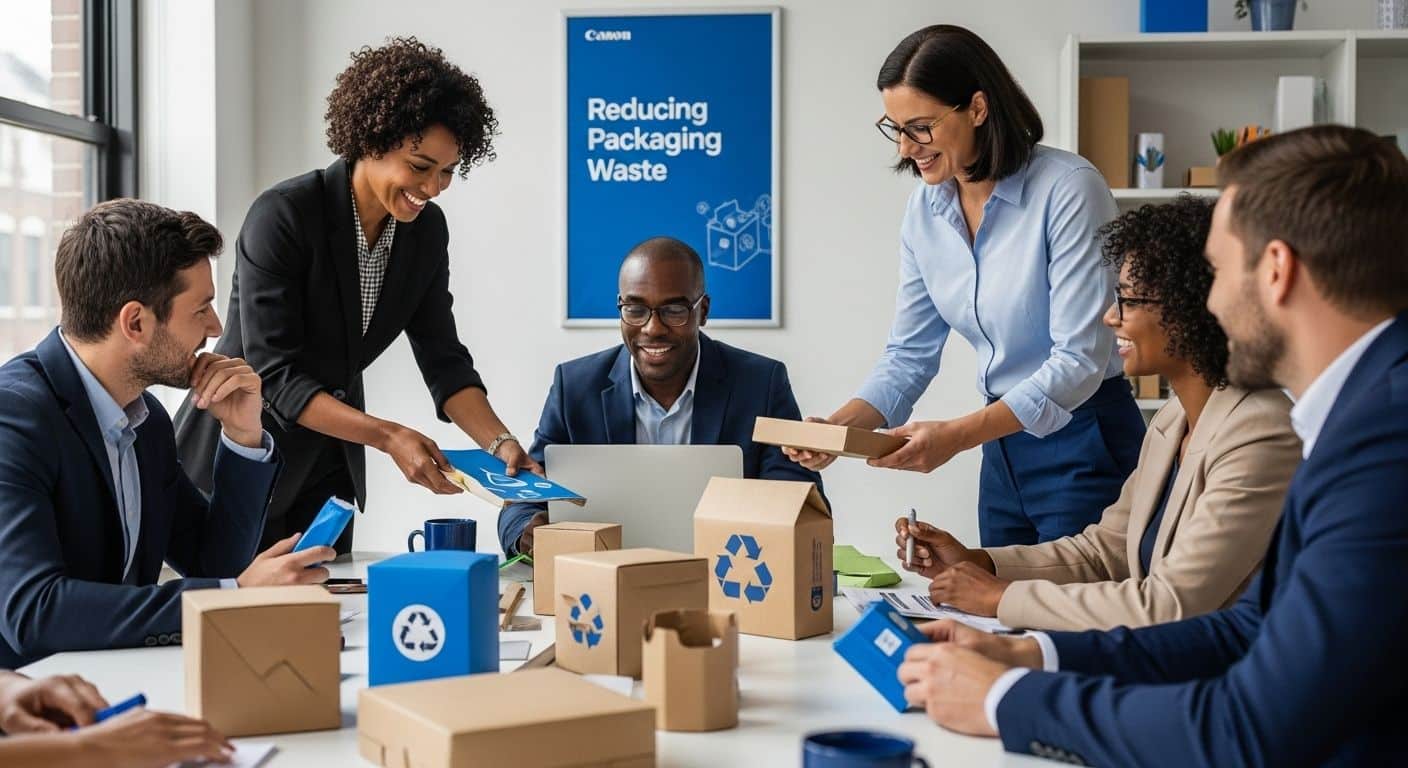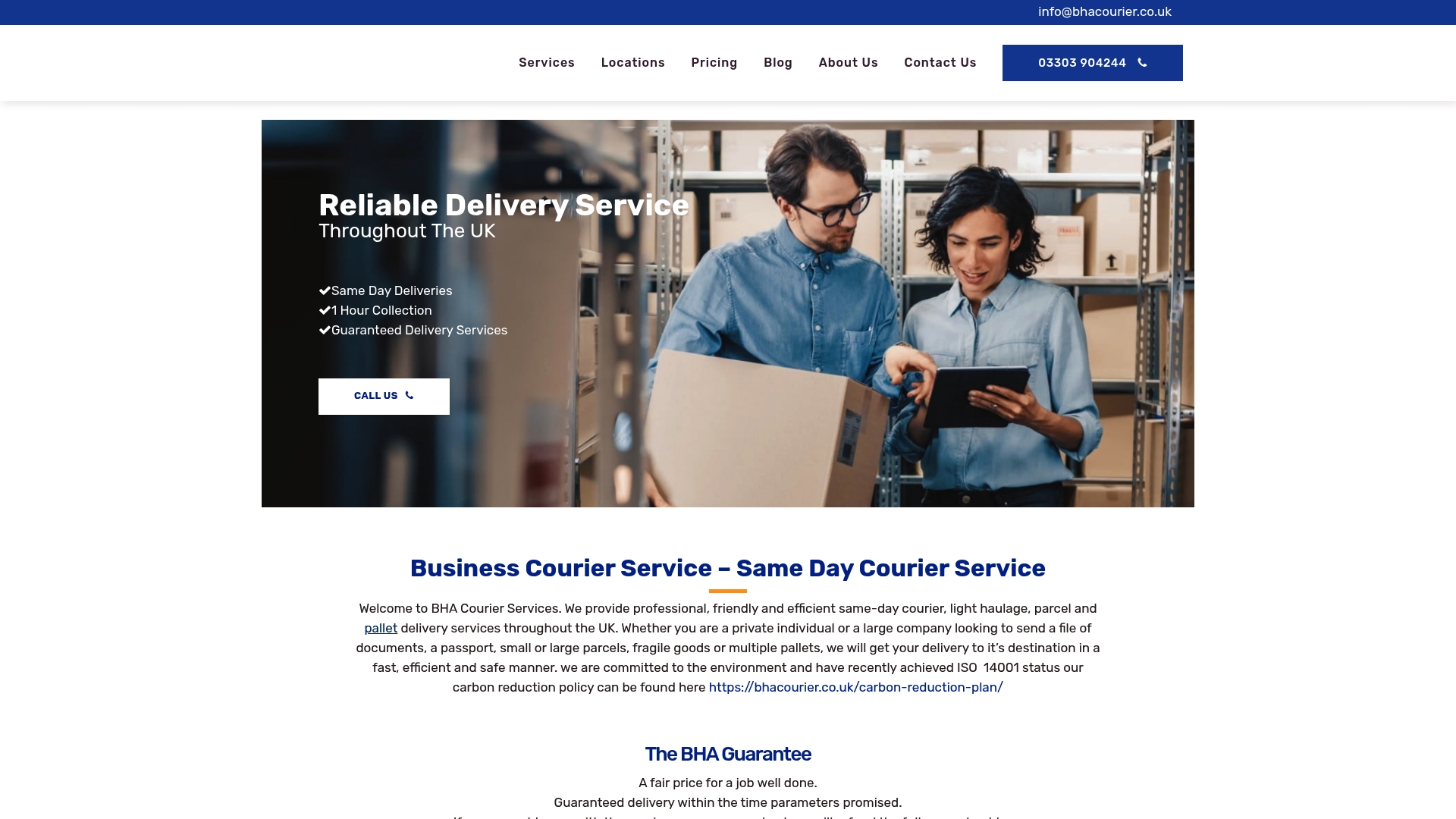
19 Aug Reducing Packaging Waste: Practical Strategies for UK Businesses
Packaging waste is piling up across the UK, and the numbers are hard to ignore. Around 37 percent of all plastic waste now comes from packaging alone. You might think businesses have already tried everything to tackle this mess. But most solutions still miss the mark, and a smarter approach could save money and the planet at the same time. Curious what fresh strategies UK companies are using to cut down on waste—and how they might turn this problem into an advantage?
Table of Contents
- Understanding Packaging Waste And Its Impact
- Simple Solutions For Businesses And E-Commerce
- Innovative Packaging Alternatives For The UK Market
- Steps To Encourage Customers And Staff Participation
Quick Summary
| Takeaway | Explanation |
|---|---|
| Reduce Packaging Size | Right-size packaging to eliminate excess space and waste. |
| Choose Sustainable Materials | Opt for recyclable, biodegradable, or minimal packaging solutions. |
| Implement Digital Innovations | Use technology to optimise packaging dimensions and track waste. |
| Engage Customers Actively | Educate customers on sustainable practices and incentivise their participation. |
| Foster Internal Awareness | Create green teams and provide training to support sustainability initiatives. |
Understanding Packaging Waste and Its Impact
Packaging waste represents a critical environmental challenge for businesses across the United Kingdom, with significant implications for sustainability and resource management. Every year, organisations generate substantial volumes of packaging materials that often end up in landfills or contribute to environmental pollution.
The Scale of Packaging Waste Problem
The environmental impact of packaging waste is staggering. Research from the Environmental Protection Agency reveals that packaging materials constitute a substantial portion of total waste generation. In recent studies, packaging accounts for approximately 37% of total plastic waste, demonstrating the urgent need for comprehensive waste reduction strategies.
Businesses generate packaging waste through multiple channels: product packaging, shipping materials, protective wrapping, and disposable containers. These materials often have short lifecycle periods but can persist in the environment for decades, creating long-term ecological challenges. The economic and environmental costs of inefficient packaging management are substantial.
Environmental and Economic Consequences
Recycling economic data illustrates that effective waste management is not just an environmental imperative but also an economic opportunity. Recycling and reuse activities can generate significant economic benefits, including job creation and tax revenues. For UK businesses, reducing packaging waste represents a chance to demonstrate corporate responsibility while potentially reducing operational costs.
The environmental consequences extend beyond immediate waste generation. Excessive packaging contributes to resource depletion, increased carbon emissions during production and transportation, and potential contamination of natural ecosystems. Plastic packaging, in particular, poses significant risks to marine environments and wildlife, with microplastics entering food chains and water systems.
Strategic Importance for Modern Businesses
Modern businesses must recognize packaging waste reduction as a strategic priority. Consumers are increasingly environmentally conscious, and companies that demonstrate commitment to sustainable practices can gain competitive advantages. Moreover, regulatory frameworks are evolving, with stricter guidelines and potential financial penalties for businesses failing to manage their packaging waste responsibly.
For businesses seeking comprehensive strategies, our guide on green logistics strategies offers practical insights into sustainable packaging approaches. By understanding the broader implications of packaging waste, organisations can develop targeted strategies that balance operational efficiency with environmental stewardship.
Reducing packaging waste requires a holistic approach involving product design, material selection, waste management processes, and continuous innovation. Businesses that proactively address these challenges will not only contribute to environmental preservation but also position themselves as forward-thinking, responsible corporate entities.
Simple Solutions for Businesses and E-commerce
Reducing packaging waste requires practical and actionable strategies that businesses, particularly in the e-commerce sector, can implement quickly and effectively. By adopting innovative approaches, organisations can significantly minimise their environmental footprint while maintaining operational efficiency.
Innovative Packaging Design and Material Selection
Research from the OECD highlights several key strategies for businesses seeking to reduce packaging waste. The primary focus should be on eco-design principles that prioritise lightweight, recyclable, and reusable materials. This approach involves carefully selecting packaging materials that minimise environmental impact without compromising product protection.
Businesses can start by conducting a comprehensive audit of their current packaging processes. This involves examining material types, packaging sizes, and waste generation patterns. By identifying opportunities for reduction, companies can implement targeted strategies such as:
- Right-sizing packaging to eliminate unnecessary void space
- Choosing recyclable or biodegradable materials
- Implementing minimal packaging designs
- Exploring alternative packaging solutions
Digital Solutions and Operational Efficiency
E-commerce businesses have unique opportunities to reduce packaging waste through digital innovation and strategic operational changes. Explore our guide on last mile delivery challenges for additional insights into optimising delivery processes that can contribute to waste reduction.
Digital technologies can play a crucial role in minimising packaging waste. Advanced software solutions enable businesses to:
- Accurately predict package dimensions
- Optimise shipping container selections
- Reduce unnecessary packaging materials
- Track and analyse packaging waste generation
Additionally, businesses can implement return packaging strategies that encourage customers to send back packaging for reuse or recycling. This circular approach not only reduces waste but also demonstrates a commitment to sustainable practices.
Customer Education and Engagement
Successful packaging waste reduction extends beyond internal processes and requires active customer involvement. Businesses should develop clear communication strategies that educate consumers about their packaging sustainability efforts. This might include providing clear recycling instructions, highlighting eco-friendly packaging choices, and transparently sharing waste reduction goals.
Implementing customer incentive programmes can further encourage sustainable behaviour. For instance, offering discounts for customers who choose minimal packaging or participate in packaging return schemes can create positive engagement and support waste reduction objectives.
By adopting a holistic approach that combines innovative design, digital solutions, and customer engagement, businesses can make significant strides in reducing packaging waste. These strategies not only contribute to environmental preservation but also position companies as responsible, forward-thinking organisations in an increasingly sustainability-conscious market.

Innovative Packaging Alternatives for the UK Market
The UK market is experiencing a transformative shift in packaging solutions, with innovative alternatives emerging that challenge traditional waste-generating approaches. Businesses are increasingly exploring sustainable, creative packaging technologies that reduce environmental impact while maintaining product integrity and customer satisfaction.

Biomaterials and Sustainable Packaging Solutions
Advanced biomaterials are revolutionising packaging design across multiple industries. Cutting-edge alternatives now include packaging made from organic materials such as seaweed, mushroom mycelium, agricultural waste, and plant-based polymers. These innovative solutions offer biodegradable options that decompose naturally, significantly reducing long-term environmental pollution.
Companies are developing packaging materials that not only protect products but also contribute positively to ecological systems. For instance, some biomaterials can be composted or even serve as nutrients for plants after their primary use. Research from materials science experts indicates that these advanced biomaterials can match or exceed the performance of traditional plastic packaging while offering substantially lower environmental impact.
Circular Economy and Reusable Packaging Systems
Reusable packaging represents a critical strategy in waste reduction. Modern businesses are implementing sophisticated circular economy models that prioritise packaging lifecycle and material recovery. Our guide on green logistics strategies provides deeper insights into implementing sustainable packaging approaches.
Innovative reusable packaging systems include:
- Standardised container networks for industrial and commercial use
- Digital tracking systems for packaging return and recycling
- Modular packaging designs that can be easily cleaned and redeployed
- Subscription-based packaging services that manage entire packaging lifecycles
Advanced Digital and Smart Packaging Technologies
Digital technologies are transforming packaging from a simple protective layer to an intelligent, interactive medium. Smart packaging technologies now incorporate features like temperature monitoring, freshness tracking, and embedded recycling instructions. These innovations not only reduce waste but also provide enhanced value to consumers and businesses.
QR codes and digital markers enable precise tracking of packaging materials, facilitating more effective recycling and waste management processes. Businesses can now gather real-time data about packaging usage, durability, and environmental impact, enabling continuous improvement of packaging strategies.
The future of packaging in the UK market lies in a holistic approach that combines sustainability, technological innovation, and circular economy principles. By embracing these advanced alternatives, businesses can significantly reduce their environmental footprint while creating more engaging, intelligent packaging solutions that meet the evolving expectations of environmentally conscious consumers.
Here is a summary table highlighting the main innovative packaging alternatives discussed for the UK market, comparing their key features and benefits:
| Packaging Alternative | Key Features | Environmental Benefit |
|---|---|---|
| Biomaterials (e.g. seaweed, mycelium) | Biodegradable, plant-based, compostable | Reduce pollution, can serve as plant nutrients |
| Reusable Packaging Systems | Standardised containers, modular, trackable | Reduce single-use waste, support circular economy |
| Smart/Digital Packaging Technologies | Embedded tracking, freshness monitoring, QR codes | Improve recycling, reduce wasted materials |
Steps to Encourage Customers and Staff Participation
Successfully reducing packaging waste requires a collaborative approach that actively engages both customers and staff in sustainable practices. By creating a culture of environmental responsibility, businesses can transform waste reduction from an organisational strategy to a shared commitment.
Building Internal Environmental Awareness
Guidance from the CDC highlights the critical importance of staff training and leadership engagement in establishing sustainable practices. Creating dedicated ‘green teams’ within organisations can drive meaningful change from within. These teams can develop internal initiatives, monitor waste reduction progress, and act as environmental champions throughout the company.
Effective staff participation strategies include:
- Regular sustainability training workshops
- Incentive programmes for waste reduction ideas
- Clear communication of environmental goals
- Transparent reporting on waste management progress
Leadership must demonstrate genuine commitment by integrating sustainability metrics into performance evaluations and actively supporting waste reduction initiatives. When staff understand the broader environmental and economic implications of packaging waste, they become more motivated to contribute to solutions.
Customer Engagement and Education
Read our comprehensive guide on green logistics strategies for deeper insights into customer participation methods. Customer engagement is crucial in packaging waste reduction, requiring innovative approaches that make sustainable choices appealing and convenient.
Businesses can implement customer participation programmes such as:
- Packaging return and recycling incentives
- Transparent packaging impact reporting
- Educational campaigns about waste reduction
- Rewards for choosing minimal packaging options
Digital platforms can enhance customer involvement by providing real-time information about packaging choices, environmental impact, and personal contribution to waste reduction efforts. Interactive tools that gamify sustainability can make environmental responsibility more engaging and enjoyable.
Creating a Collaborative Ecosystem
Successful packaging waste reduction transcends individual efforts, requiring a collaborative ecosystem involving businesses, customers, suppliers, and local communities. By creating transparent communication channels and shared goals, organisations can build a network committed to sustainable packaging practices.
Collaborative approaches might include:
- Joint sustainability workshops
- Community recycling programmes
- Supplier sustainability assessments
- Open innovation platforms for waste reduction
Businesses that view packaging waste reduction as a collective responsibility rather than an isolated challenge are more likely to develop innovative, effective strategies. By fostering a culture of continuous learning and shared environmental stewardship, companies can drive meaningful change in packaging waste management.
Ultimately, encouraging customer and staff participation is about creating a shared vision of sustainability. When individuals understand their role in reducing packaging waste and feel empowered to make a difference, businesses can achieve remarkable environmental and economic outcomes.
Below is a table outlining practical steps businesses can take to encourage participation from both staff and customers in packaging waste reduction, as mentioned throughout the section:
| Audience | Participation Strategy | Example/Tool |
|---|---|---|
| Staff | Sustainability training workshops | Internal workshops |
| Staff | Incentives for waste reduction ideas | Reward programmes |
| Staff | Regular communication and progress reports | Environmental goal updates |
| Customers | Return/recycling incentives | Discount for returns |
| Customers | Transparent packaging impact reporting | Impact dashboards |
| Customers | Educational campaigns on waste reduction | Digital/email campaigns |
| Customers | Rewards for minimal packaging choices | Loyalty points or discounts |
Frequently Asked Questions
What are some effective strategies for reducing packaging waste in UK businesses?
To reduce packaging waste, UK businesses can implement strategies such as right-sizing packaging to eliminate excess space, choosing sustainable materials like recyclables or biodegradable options, leveraging digital technologies to optimise packaging dimensions, and actively engaging customers in sustainability initiatives.
How can innovative packaging design help in minimising waste?
Innovative packaging design focuses on eco-friendly materials and lightweight designs that reduce environmental impact while protecting products. Techniques such as minimal packaging designs and alternative materials, like biomaterials, are essential in creating a sustainable packaging solution that aligns with modern consumer expectations.
What role does customer education play in reducing packaging waste?
Customer education is vital for reducing packaging waste. By clearly communicating sustainability efforts, providing recycling instructions, and incentivising eco-friendly choices, businesses can engage consumers in their waste reduction goals, fostering a culture of sustainability.
How can companies adopt digital solutions to enhance packaging efficiency?
Companies can adopt digital solutions by using advanced software to predict packaging dimensions accurately, optimise shipping container selections, and track packaging waste generation. These technologies streamline operations and contribute to a more sustainable packaging strategy.
Transform Packaging Waste Reduction Into Real Business Impact With BHA Courier
Is excessive packaging waste holding your business back from reaching its true sustainability goals? Many UK companies struggle to balance environmental responsibility with reliable delivery. As highlighted in our guide, right-sizing packaging, using sustainable materials, and cutting excess from your processes are now more important than ever. But none of these strategies succeed unless your logistics partner shares your vision for a cleaner future. That is where BHA Courier leads the way.

Rely on BHA Courier to deliver time-critical and secure solutions that accelerate your journey towards less waste. Our same-day courier services and nation-wide delivery network ensure your reduced, right-sized packaging reaches its destination quickly and safely every time. We are ISO 14001 certified for environmental management so your business can be confident in both performance and sustainability. Join the growing list of UK businesses making waste reduction part of their brand promise. Book a cleaner, more efficient delivery experience today at BHA Courier and see how simple reducing your packaging footprint can be.


